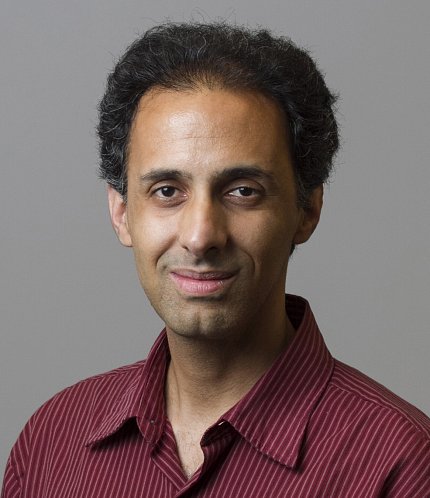NCI Senior Investigator Retires

Dr. Hormuzd Katki, senior investigator in the Biostatistics Branch (BB), accepted early retirement in April.
Katki is internationally recognized for his work in developing and applying quantitative methods to identify and answer the most pressing questions in cancer epidemiology. He translated these findings into tools for the prevention and early detection of cancer in individuals and populations, particularly for cancers of the cervix and lung, and developed metrics for evaluating risk models and biomarkers.
New cervical cancer screening guidelines were based on critical investigations he led to calculate cervical cancer risks over time for 1.4 million women at Kaiser Permanente Northern California, facilitating an evolution of the guidelines from test result-based to risk-based management and ensuring “equal management of women at equal risk of cancer.”
Despite the recommendation of the U.S. Preventive Services Task Force for use of low dose CT (LDCT) to screen for lung cancer in current and former smokers, adoption is still limited, partly due to the inefficiency of screening which results in false positives. Katki validated several individual risk assessment tools, in collaboration with others in BB, to make screening more efficient by selecting ever-smokers at highest risk who would receive greatest benefit. Today, these tools provide the computational engine for a prediction-based online lung screening tool and the clinical decision support intervention in the EPIC electronic health record system.
Katki evaluated all aspects of potential biomarkers for clinical trials and created the mean risk stratification to better compare test results across populations with different disease prevalence, including cervical screening and risk models to identify who in a family carries a variation in BRCA1/2.
Katki mentored both statisticians and epidemiologists. He received a B.S. in math from the University of Chicago, an M.S. in statistics from Carnegie-Mellon University and a Ph.D. in biostatistics from Johns Hopkins University, where he received the Margaret Merrell Award for research by a biostatistics doctoral student.
He joined NCI in 1999, became a principal investigator a decade later, was appointed senior investigator upon receiving NIH scientific tenure in 2015, and became an American Statistical Association fellow in 2025.
